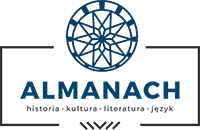The perception of ‘mind’ and ‘intellect’ in Karaite proverbs from a collection of V. I. Filonienko entitled Аталар созы copied by Josif Kefeli
Kamila Barbara Stanek
k.stanek@uw.edu.plUniwersytet Warszawski, Wydział Orientalistyczny, Zakład Turkologii i Ludów Azji Środkowej (Poland)
Abstract
The article is based on proverbs selected from a collection of Karaite proverbs of Victor I. Filonienko, a handwritten copy of which was prepared by Josif Kefeli. The manuscript constitutes a part of Józef Sulimowicz’s collection, and was drafted at his request. From this collection totalling 150 Karaim proverbs, 10 have been selected that concern perceptions of mind and intellect. Since neither the author nor the copyist provided all the proverbs with a commentary regarding the context of their use, the analysis is supported by explanations found in other Karaim collections of proverbs and sayings, or by proverbs in modern Turkish with a similar meaning. Most of the analyzed proverbs point to the importance that Karaims attach to logical thinking, which, in contrast to thoughtless actions, eliminates the risk of loss. Hence, the reader is warned against having any contact with stupid and crazy people. However, a single exception can be found here, namely one saying that we can only learn the truth from insane (stupid, naïve) people and children. In one of the proverbs we encounter the conviction that not only the mind, but also luck has an impact on human lives.
Keywords:
Karaims, Karaims proverbs, Crimean Karaim literature, Crimean Karaim folklorReferences
References
Kart da kartajmachan sezłer, „Karaj Awazy” 1935, z. 8, s. 2–7; w: http://www.jazyszlar.karaimi.org/index.php?m=7&p=944 [13.11.2015] Google Scholar
Ata sezłeri Kyrymły Karajłarnyn: Ystyrdy B. Kokenaj, „Karaj Awazy” 1935, z. 8, s. 19–22; w: http://www.jazyszlar.karaimi.org/index.php?m=7&p=951 [01.10.2016]. Google Scholar
Mardkowicz A., Karaim. Jego życie i zwyczaje w przysłowiach ludowych, Łuck 1935. Google Scholar
Mardkowicz A., Okruchy ze stołu ojców: (Garść przysłów karaimskich) „Myśl Karaimska” 1937–1938, T. 12, z. 12, s. 105–108; w: http://www.jazyszlar.karaimi.org/index.php?m=7&p=346 [13.11.2015]. Google Scholar
Stanek K. B., WODA w językach słowiańskich i tureckich – na przykładzie przysłów języków słowackiego i polskiego oraz tureckiego i karaimskiego. Referat wygłoszony na konferencji „Żywioły w języku zamknięte – Żywioły w poznaniu i kulturze w językach i literaturach słowiańskich i germańskich”, Częstochowa, 23–24 listopada 2015. Google Scholar
Sulimowicz A., Słowa naszych przodków, „Awazymyz” nr 1 (42), marzec 2014, rok XXV, s. 15–17. Google Scholar
Zajączkowski W., Przysłowia, powiedzenia i formułki Karaimów trockich (Przyczynek do badań nad karaimską twórczością ludową), „Myśl Karaimska” Seria Nowa 1946–1947, T. 24, z. 2, s. 53–65; w: http://www.jazyszlar.karaimi.org/index.php?m=7&p=425 [13.11.2015]. Google Scholar
Polkanova А. Û., Poslovicy i pogovorki krymskich karaimov (karaev) – važnyj istočnik rekonstrukcii ètapov razvit’â ètnokul’tury, „Naukovì pracì ìstoričnogo fakul’tetu Zaporìz’kogo nacìonal’nogo unìversitetu”, 2014, t. ХХХІХ, s. 184–189. Google Scholar
Filonenko V. I.; „Аtalar sozy 146 i drugih. Karaimskie poslovicy i pogovorki”, rekopis nr inw JSul.I.55.12. Google Scholar
Atasözleri ve Deyimler Sözlüğü, w: http://www.tdk.gov.tr/ [01.10.2016]. Google Scholar
http://karai.crimea.ua/karai/yazyk-karaimov/folklor [07.11.2016]. Google Scholar
http://www.kizlarsoruyor.com/kisilik-karakter/q5007435-sende-akil-var-fikir-yok-ne-demek [10.11.2016]. Google Scholar
http://www.murtecisozluk.com [01.10.2016]. Google Scholar
Authors
Kamila Barbara Stanekk.stanek@uw.edu.pl
Uniwersytet Warszawski, Wydział Orientalistyczny, Zakład Turkologii i Ludów Azji Środkowej Poland
Doktor nauk humanistycznych, turkolog, slawista. Adiunkt w Zakładzie Turkologii i Ludów Azji Środkowej Wydziału Orientalistycznego Uniwersytetu Warszawskiego. Jej zainteresowania naukowe koncentrują się wokół problemów socjolingwistycznych na Bałkanach, wzajemnych oddziaływań języka i kultury, językoznawstwa tureckiego, języka tureckiego i reformy języka tureckiego, metodyki nauczania tego języka. Publikacje w jej dorobku dotyczą zagadnień języka, kultury i tożsamości Turków w Turcji i na terenach dawnego Imperium Osmańskiego. Adres do korespondencji: k.stanek@uw.edu.pl.
Statistics
Abstract views: 116PDF downloads: 95
License
Authors
Authors of texts accepted for publication in Karaim Almanac are required to complete, sign and return to the Editorial team’s office the Agreement for granting a royalty-free license to works with a commitment to grant a CC sub-license.
Under the agreement, the authors of the texts published in Karaim Almanac grant Polish Karaim Association a non-exclusive, royalty-free license and authorize the use of Attribution-NoDerivatives 4.0 International (CC BY-ND 4.0) Creative Commons sub-license.
The authors retain the right to the free disposal of the work.
Users
Interested Internet users are entitled to use works that have been published in Karaim Almanac since 2018, under the following conditions:
▪ attribution – obligation to provide, together with the distributed work, information about the authorship, title, source (link to the original work) and the license itself.
▪ no derivatives – the work must be preserved in its original form. Without the author's consent, it is not possible to distribute the modified work in the form of translations, publications, etc.
Copyrights are reserved for all texts published before 2018.
Miscellaneous
Polish Karaim Association retains the property right as a whole (layout, graphic form, title, cover design, logo etc.).
Privacy statement
The names and email addresses published on this journal site will be used exclusively for the purposes declared by this journal and cannot be used for any other purpose or by any other party.
Most read articles by the same author(s)
- Kamila Barbara Stanek, Women in Mardkowicz’s Karaim. Jego życie i zwyczaje w przysłowiach ludowych. A starting point for a comparative analysis of the reception of women in Karaim, Turkish and Polish proverbs , Karaim Almanac: Vol. 4 (2015)


